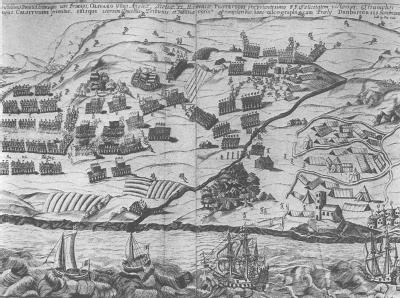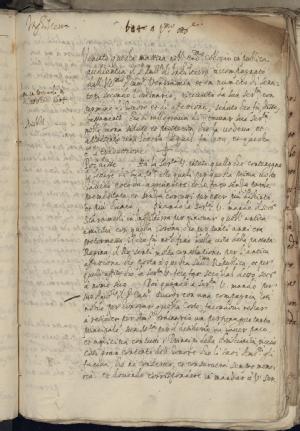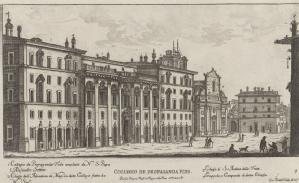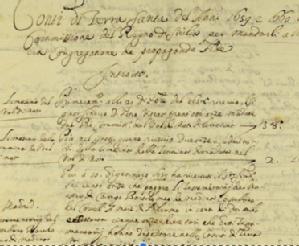2019-20 Recipients of the Dr Greg Wells Small Research Awards
Dr Marta Celati and Dr Maria Pavlova
The grant from the CSR will be used to fund a two-day international conference entitled ‘The Prince and the Condottieroin Italian Humanism and Renaissance: Literature, History, Political Theory and Art’ that will take place on 17 and 18 June 2021. Given the uncertainty surrounding the Covid-19 situation we have decided to hold this conference in the second half of the academic year rather than in September 2020 as originally planned. The aim of the conference is to analyse the different forms and genres through which political and military leadership has been defined and portrayed in the period between 1400 and 1600, paying special attention to historical narratives, political treatises, chivalric romance, epic poetry, guerre in ottava rima, and visual and artistic representations. Our speakers include internationally renowned scholars and early career researchers, and it is hoped that the conference will lead to the publication of an innovative and wide-ranging collection of essays. In addition to the CSR funding and our Leverhulme research allowances, we have been awarded a major conference grant (£1500) from the Society for Renaissance Studies.
Vendy Hoppe (CSR Master's Student)
Thanks to the generous support of the Dr Greg Wells Research Award at the Centre for the Study of the Renaissance I will be able to embark on an archival research trip to Venice in July 2020. The research I will conduct in the Venetian State Archives will contribute towards my Master’s thesis at the CSR, focused on how foreigners shopped in Renaissance Venice. I am interested in finding out how shoppers unfamiliar with the busy streets and campi of Venice navigated the wide array of shopping opportunities of the Serenissima. Moreover, I am interested to find out what options for the acquisition of luxuries Venice offered and what guidance and restrictions were in place for arriving foreigners. While the economic strength of Renaissance Venice and its position as a major trading hub has been explored by generations of scholars, the specific role of luxury-lusting foreigners has not been considered. Thanks to this research award I am hoping to fill this pressing gap in scholarship by consulting archival documents such as shop inventories and guild records as well as conducting in situ research tracing down some of the Venetian shops and warehouses. Therefore, I am hoping that this thesis will enlighten aspects of the changing attitudes towards consumption during the Renaissance. This kind of research would not be possible without a trip to Venice, I am therefore grateful to the support of the Dr Greg Wells Award for making this happen.
Benedetta Pacini (History of Art PhD student)
The Greg Wells Research Award is considerably helping me to carry on my work in this period, since on a weekly basis I am travelling from Pistoia (my hometown) to university libraries in Florence. I submitted my doctoral thesis in December 2019, and I had my telematic viva on 6 April 2020. After my viva, I started working on corrections of my dissertation for the final submission, together with the preparation of articles to be submitted to academic journals. As these activities require the regular use of specialised art history libraries, without the Greg Wells Research Award it would have been impossible for me to carry on with my academic activities in these exceptional circumstances. Therefore, I would like to express my sincere gratitude for this research award.
Dr Imogen Peck
As a Leverhulme Early Career Fellow at the University of Warwick this spring has been a busy one for me, balancing completing the manuscript for my first book with getting my next research project underway. The former task has been greatly assisted by the award of a small benefactor's grant, which I have used to cover some of the costs of reproducing images in my forthcoming book, Recollection in the Republics: Memories of the British Civil Wars in England, 1649-1659 (Oxford University Press, 2021). This provides the first comprehensive study of the ways Britain’s Civil Wars were remembered in the decade between the regicide and the restoration. It explores multiple manifestations of memory, placing the national authorities’ attempts to shape the meaning of the recent past alongside evidence of what the English people – lords and labourers, men and women, veterans and civilians – actually were remembering. To do so, it uses a varied and wide-ranging source base, from pamphlets and petitions to objects and images. One picture which I discuss is an engraving of the Battle of Dunbar produced by the Commonwealth historian Payne Fisher in 1650. This item is held in the Ashmolean Museum, Oxford, and with the help of this award I am now able to include the image in my book. Copies of Fisher's engraving can be found here: https://commons.wikimedia.org/wiki/File:Battle_of_Dunbar_1650.jpg

Prof. Carol Chillington Rutter
CSR funding came to my project, 'Wotton in Venice, 1604-1610: A Digital Diplomatic Bag', at a crucial time; indeed, it is fair to say that this funding gave a green light to a project stuck on yellow and fearing red. The Delmas Foundation has awarded it $20,000 dollars, but stipulates that the grant may not be used to translate the diplomatic documents that constitute the Venetian half of the 'bag'. Without the translations, the project could no proceed. Stepping in, the CSR award of £1500 allowed me to commission a young Irish-Italian PhD (introduced by a Warwick IAS fellow), in lockdown outside Rome, to translate the first large tranche of Esposizioni Principi documents from the Archivio di Stato, all of buste XIV and XV, some 170 folios of secretarial transcription taken down verbatim in Collegio. To translate all the Esposizioni the final cost will be £17,000. This grant has provided the start-up funding. It has also proved important in unexpected ways: during this time of global pandemic, when conferences have been cancelled, archives sealed, personal meetings inhibited, working on a digital project has allowed me to construct a virtual team that keeps research on-going, that keeps the door of the Archivio di Stato in Venice cracked open and a young scholar employed on work that is meaningful both for Wotton's 'bag' and her academic CV. Thank you, CSR.

Dr Felicita Tramontana
Thanks to the Benefactor’s Small Research Award in September I will be able to spend a week in Rome working in its numerous and rich archives. I plan to visit the Roman Jesuit Archive (ARSI) and the Archive of the Sacred Congregation De Propaganda Fide. Established in 1622, the Congregation was in charge of Catholic missionary activity worldwide. Its archive contains decrees, reports and correspondence between Rome and the missionaries scattered across the world.
The aim of this research trip is to collect archival documents that may shed new light on the relationship between Catholic missions and the globalizing processes that characterize the early modern period. I am particularly interested in exploring the relationship between Catholic missions and the expansion of European trade in the 17th and 18th centuries and the numerous connections between missionaries and trade networks. A first outcome of this research will be a paper that I will present at the conference: “Connecting Empires. Missionaries as agents of empires in the Early Modern Period” (Loraint, France, 15-16 October 2020). The paper will then be published in a volume edited by Hélène Vu Thanh, (Université de Bretagne-Sud) on Catholic missions and early modern empires. Without the Benefactor’s Small Research Award this research trip would not be possible. I feel privileged to have the opportunity to work in the Roman archives and I am very grateful to the Benefactor’s Small Research Award for it.

Figure 1 Propaganda Fide by Giovanni Battista Falda (1665)

Figure 2 Report sent to Propaganda Fide 17th century
